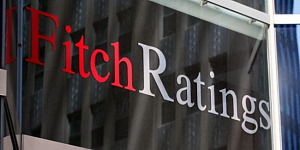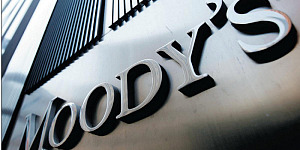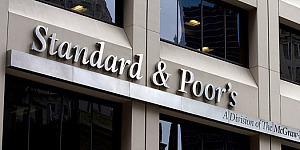Fitch Ratings has upgraded the Republic of Congo's Long-Term Foreign-Currency Issuer Default Rating (IDR) to 'CCC' from 'CC'.
A full list of rating actions is at the end of this rating action commentary.
KEY RATING DRIVERS
The upgrade of Congo's IDR reflects an improvement in government liquidity from higher oil revenues, and reduced risk of disruptions to payments of bondholders, despite lingering uncertainty over the conclusion of debt restructuring discussions and agreement on an IMF programme.
The recovery in oil prices and production, as well as fiscal consolidation measures, offer temporary liquidity relief to government finances. Congo's external current account balance (CAB) has shifted from large double-digit deficits over 2015-2017 to an estimated surplus of 11.3% of GDP in 2018 and projected at 8.7% in 2019. However, as oil production is expected to decrease in 2020 with the depletion of the Moho Nord field, the CAB is expected to revert to deficit again in 2020, to -5.1% of GDP according to Fitch's estimates. Similarly, the fiscal deficit will substantially narrow in 2018 to -2.3% of GDP, against an average of -23.3% between 2015 and 2017, and should record a surplus in 2019 (5.3% of GDP) and in 2020 (2%).
The default risks on Congo's market debt instruments have lessened. We understand that the authorities continue to aim to exclude Congo's sole Eurobond (USD478 million maturing in 2029) and the five-year local-currency bond from ongoing debt restructuring negotiations. They expect to reach an agreement with bilateral creditors this year, although further delays are possible. Negotiations with oil traders are likely to take longer but are not expected to hold up progress towards an agreement on an IMF programme.
An IMF programme would catalyse further international donor financing of up to around USD900 million over three years, according to the authorities. Importantly, in Fitch's view, a programme would strengthen the credibility and coherence of the macroeconomic framework, especially on the fiscal consolidation and debt sustainability front, although implementation risks are likely to be high.
Congo's 'CCC' IDR also reflects the country's low governance indicators and uneven track record of debt repayment, unsustainable debt levels, narrow funding options and vulnerability to external shocks.
A recent history of defaults, recurring governance and public finance management (PFM) deficiencies weigh on the rating. Congo defaulted twice on its Eurobond, in 2016 and 2017, one of which was caused by poor debt management and the other linked to the litigation between Congo and Commissions Import Exports SA (Commisinpex). Deep-rooted institutional shortcomings have also laid the ground for past recourse to opaque financing schemes. PFM deficiencies could hinder future debt repayments or leave debt levels on an unsustainable track.
General government debt and debt service levels remain unsustainably high. We estimate general government debt declined to about 100% of GDP in 2018, against 113% in 2017. We project the ratio will decrease slightly to 97% in 2019, before rising again to 101% in 2020, mainly due to a projected contraction of nominal GDP. The concentration of maturities coming due on public debt over the coming two years will lead to debt maturities averaging 12.7% of GDP between 2018 and 2020, against 5.6% in 2017. Congo has accumulated large arrears, essentially domestic, reaching around 28% of GDP in 2018 according to official estimates.
The materialisation of contingent liabilities remains a risk. The lack of transparency of state-owned enterprises' balance sheets brings uncertainty about the level of their debt. A government-commission audit of arrears and contingent liabilities is still on-going. In addition, continuing litigation with Commisinpex could cause additional debt claims to arise.
Net external debt is estimated to have reached 61.1% of GDP in 2018, compared with 78.8% in 2017 and, and should decline to 57.2% of GDP on average over 2019-2020. External debt service as a share of current account receipts more than doubled in 2016 and 2017 to reach 19.4% on average, mainly due to a fall in oil exports proceeds.
Congo's membership of the Central African Economic and Monetary Community (CEMAC) reduces the foreign exchange liquidity risk as it gives the country access to the pooled reserves of the six member states and to the unlimited convertibility from the CFA franc to the euro provided by France. Congo's virtually allocated official reserves will remain low, with 1.6 months of import coverage on average in 2019 and 2020.
Funding options remain narrow as delays in final agreement of an IMF programme have hindered budget support from international donors and access to international capital markets remains limited. A freeze of statutory advances from the Central Bank of Central African States (BEAC )in 2016 coupled with a shallow regional market and tighter liquidity conditions in CEMAC have reduced local currency funding options.
The current growth recovery is expected to be temporary as we project oil production to start declining in 2020 and non-oil growth to remain negative. Fuelled by the increase in oil revenues, GDP grew by 1.0% in 2018 and will grow by 2.5% in 2019, albeit a slower rate than assumed by the government in the 2019 budget (+3.1%). However, the decline in oil production will lead to a renewed contraction of GDP in 2020 (-1%). Our projections are driven by our lower non-oil growth forecasts, which average -3% between 2019 and 2020 compared with positive rates expected by the authorities. Public investment should be constrained by limited fiscal space and restricted private sector investment.
Social and political tensions remain high. Security in the Pool region of Congo improved after the 2017 peace agreement, allowing the train and the road between Congo's economic hub of Pointe-Noire and the capital Brazzaville to function again. Risks of social unrest remain, exacerbated by arrears on payment of government wages in the health and education sectors.
SOVEREIGN RATING MODEL (SRM) and QUALITATIVE OVERLAY (QO)
In accordance with its rating criteria, for ratings of 'CCC' and below, Fitch's sovereign rating committee has not utilised the SRM and QO to explain the ratings, which are instead guided by the ratings definitions.
Fitch's SRM is the agency's proprietary multiple regression rating model that employs 18 variables based on three-year centred averages, including one year of forecasts, to produce a score equivalent to a LT FC IDR. Fitch's QO is a forward-looking qualitative framework designed to allow for adjustment to the SRM output to assign the final rating, reflecting factors within our criteria that are not fully quantifiable and/or not fully reflected in the SRM.
RATING SENSITIVITIES
The following developments could lead to positive rating action:
- Sustained easing of financing conditions through, for example, inflows facilitated by implementation of an IMF programme
- Improvement of debt sustainability from finalisation of a restructuring agreement
- A reconstitution of fiscal and external buffers
The following developments could lead to a negative rating action:
- Increased signs of an imminent default or possible restructuring of market debt instruments
- Disruptions to payments to bondholders arising from legal procedures initiated against the sovereign
KEY ASSUMPTIONS
Global economic trends and commodity prices are expected to develop as outlined in Fitch's Global Economic Outlook.
The full list of rating actions is as follows:
Long-Term Foreign-Currency IDR upgraded to 'CCC' from 'CC'
Long-Term Local-Currency IDR affirmed at 'CCC'
Short-Term Foreign-Currency IDR affirmed at 'C'
Short-Term Local-Currency IDR affirmed at 'C'
Country Ceiling upgraded to 'BB-' from 'B+
Issue ratings on long-term senior unsecured foreign-currency bonds upgraded to 'CCC' from 'CC'







































